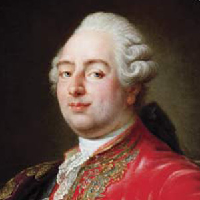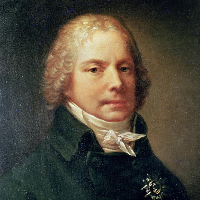Adam Weishaupt tipo di personalità MBTI
Personalità
"Che tipo di personalità è Adam Weishaupt? Adam Weishaupt è un tipo di personalità INTJ in mbti, 6w5 - sp/sx - 683 in enneagram, in big 5, LIE in socionics."
Ni/Te : Dom and inf functions: Adam Weishaupt gave his life to his goal : to make Illuminism reign everywhere on Earth and forever (Ni). To implement his ideas, he spent 5 years developing a plan (in which all his ideas were systematized) to make a secret society (Ni). The society of Illuminism was extremely well organized, all the details were measured, there should be no unforeseen events (Ni dom and Se inf). His strategy took into account an INFINITY of details (on how to introduce members to the sect, how to organize the hierarchy, on the population he was targeting (for example he wanted to bring in more women because they made men stay/come by seducing them, so it was more profitable than men (we know this because we found Weishaupt's documents at his associate Zwack's house)), on his way of manipulating the rich, etc.) and was extremely well thought out (Nx dom) He was for the governance of Illuminism on the universal level, and on the future (Ni). When he died, he took care to transcribe his directives for the future, even though the Bavarian Illuminati had been dissolved (in 1785), because he was hoping that it would be recreated (Ni). His ideal society was soooo idealist, clearly Ni dom and Se inf : abolition of the Monarchy and all established government; abolition of private property; abolition of the right of inheritance; abolition of patriotism; abolition of marriage; abolition of religion. He wanted to return to the natural condition (the Rousseau's "primitive virtue" (Weishaupt was rousseauist)). He used a lot of symbolic references (they took pseudonyms of ancient characters (Weishaupt chose Spartacus), they had their own alphabet with their symbols and meanings, etc.) (Nx). He was extremely calculating ("Apply yourself to the art of simulation, to hide who you are in order to penetrate the secrets of their thoughts. "Keep silent, be perfect, mask yourself."), any means used for the good of Illuminism was considered justified, since the fundamental doctrine of the Bavarian Illuminism to apply their ideas was that the end justifies the means. He put the order of Illuminism above all else, he didn't give his life to others, he gave his live to his purpose (it is Ni De, not De Ni). "The human race will then become one family and the world will be dwelling of Rational Men" (Ni). Aux and tert functions: According to one of Weishaupt's associates who later broke with him, Adam Weishaupt wanted to rule despotically, he was deceitful, imaginative, bold, a tyrant leader, without a word of sympathy for those who suffered. This sounds more Te-Fi than Fe-Ti. He wanted to find an ideal of society that would benefit all, but for this ideal to work he wanted to instill in man a just and constant morality. It is once again Te-Fi, he wants to transmit his personal values to benefit the others, but in a more rational way. "Morality will perform all this; and Morality is the fruit of Illumination" (Te-Fi) "When reason becomes the religion of man, then all problems will be solved" (Te (and also Ni))
Biografia
Johann Adam Weishaupt (6 February 1748 – 18 November 1830) was a German philosopher, law professor, and founder of the Order of the Illuminati, a secret society. After Pope Clement XIV’s suppression of the Society of Jesus in 1773, Weishaupt became a professor of canon law, a position that was held exclusively by the Jesuits until that time. In 1775 Weishaupt was introduced to the empirical philosophy of Johann Georg Heinrich Feder of the University of Göttingen. Both Feder and Weishaupt would later become opponents of Kantian idealism. According to Voltaire, professor August Hermann Francke had been teaching in an empty classroom but Wolff attracted with his lectures around 1,000 students from all over. In the following up Wolff was accused by Francke of fatalism and atheism. James Madison. Thomas Jefferson. John Robison. Napoleon. French Revolution. Robespierre. Danton. Montesquieu.















